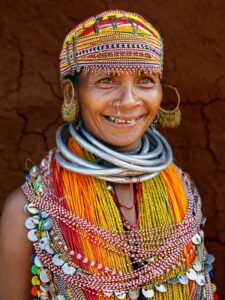“Mattole People: Guardians of the Redwoods, Keepers of Ancient Wisdom”
Introduction:
Nestled along the rugged coastline of Northern California, the Mattole people stand as stewards of a land rich in natural beauty and cultural heritage. With a history intricately woven into the redwood forests and the Pacific Ocean, the Mattole Nation’s journey is a story of resilience, adaptability, and a deep connection to the sacred landscapes they call home. In this exploration, we will delve into the unique aspects of Mattole culture, trace the historical trajectory of their people, and illuminate the contemporary challenges and triumphs as they strive to preserve their identity against the backdrop of a changing world.
I. Historical Foundations:
- Origins and Early Settlements: The Mattole people, part of the larger Wiyot language family, have inhabited the region of present-day Humboldt County for thousands of years. Their traditional lands extend from the inland forests to the rocky shores of the Pacific. For the Mattole, life was intricately connected to the natural rhythms of the land and sea, with a reliance on hunting, fishing, and gathering as fundamental elements of their subsistence.
- Cultural Significance of the Redwoods: The towering redwood forests, with their ancient giants reaching towards the sky, hold profound cultural significance for the Mattole people. The redwoods are not merely trees; they are revered as sacred beings, embodying a connection to the spiritual realm and serving as repositories of ancestral wisdom. The Mattole’s relationship with these majestic trees is central to their cultural identity.
II. Cultural Pillars:
- Language and Oral Tradition: The Mattole language, part of the Athabaskan language family, is a crucial element of their cultural identity. Like many indigenous languages, Mattole has faced challenges over the centuries. However, concerted efforts to revitalize the language and pass down oral traditions, including stories, myths, and ceremonial practices, remain integral to preserving the Mattole way of life.
- Spirituality and Connection to Nature: Mattole spirituality is deeply rooted in the natural world. The landscape of ancient redwoods, rivers, and the Pacific Ocean is considered sacred, with the belief that all living beings are interconnected. Traditional ceremonies, often centered around seasonal cycles and natural phenomena, serve to maintain the balance between the physical and spiritual realms in Mattole culture.
III. Historical Challenges and Adaptations:
- Impact of European Colonization: The arrival of European settlers in the 19th century brought profound changes to the Mattole way of life. Displacement, loss of land, and the imposition of Euro-American systems of governance posed significant challenges to the Mattole people. The impact of colonization tested their resilience and ability to adapt while maintaining their cultural heritage.
- Struggles for Land Rights and Recognition: The Mattole people, like many Native American tribes, faced struggles for land rights and recognition. Historical injustices, including the taking of ancestral lands and the suppression of cultural practices, prompted the Mattole to advocate for their rights and seek recognition of their sovereign status. Land remains a central focus in their ongoing efforts to assert autonomy and protect their sacred sites.
IV. Contemporary Mattole Society:
- Cultural Revitalization: In the 20th and 21st centuries, the Mattole Nation has witnessed a resurgence of cultural revitalization efforts. Initiatives aimed at language preservation, cultural education, and the revival of traditional arts and crafts play a pivotal role in reaffirming Mattole identity. Ceremonies and gatherings bring the community together, fostering a sense of pride and continuity.
- Environmental Activism: The Mattole people have been at the forefront of environmental activism, particularly in the fight to preserve the ancient redwood forests. Their deep connection to the land positions them as natural advocates for its protection. Efforts to address issues such as deforestation, habitat destruction, and resource exploitation are crucial components of the Mattole commitment to environmental stewardship.
V. Contemporary Challenges and Future Prospects:
- Environmental Conservation and Sustainable Practices: The Mattole people face ongoing challenges related to environmental conservation. Balancing the preservation of their sacred landscapes with the need for sustainable practices is a delicate endeavor. Initiatives that promote responsible land management, reforestation, and the integration of traditional ecological knowledge can contribute to the long-term well-being of both the Mattole people and their ancestral lands.
- Educational Empowerment and Cultural Exchange: Education plays a pivotal role in the empowerment of the Mattole youth and the broader community. Culturally relevant educational programs, both within the tribe and in mainstream institutions, contribute to preserving traditional knowledge and fostering a sense of identity. Cross-cultural exchanges also play a vital role in enhancing understanding and respect between the Mattole Nation and surrounding communities.
Conclusion:
The story of the Mattole people is one of resilience, cultural richness, and a profound connection to the land. From the ancient redwood forests to the rocky shores of the Pacific, the Mattole have maintained their spiritual bond with the natural world despite the challenges posed by colonization and societal changes. In contemporary times, efforts to revitalize language, celebrate cultural practices, and advocate for environmental conservation underscore a commitment not only to survival but to the flourishing of the Mattole way of life. The Mattole Nation stands as guardians of the redwoods and keepers of ancient wisdom, weaving a tapestry of cultural continuity that spans generations and embodies the enduring spirit of indigenous peoples.